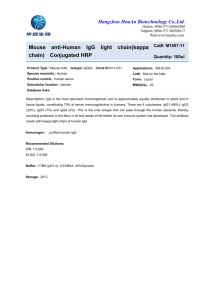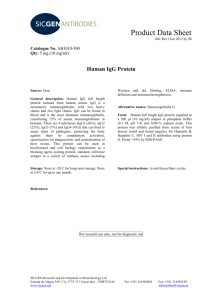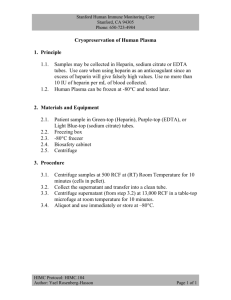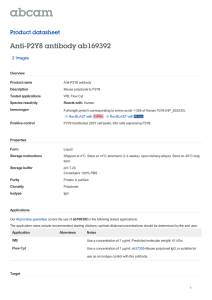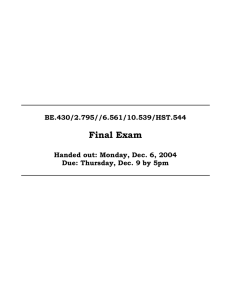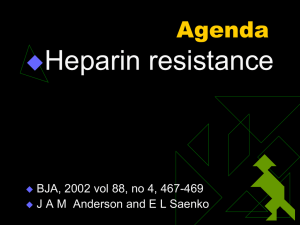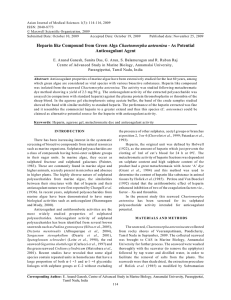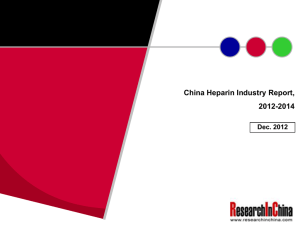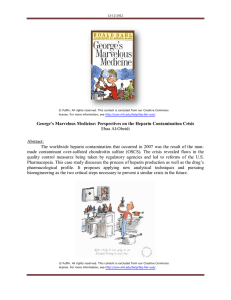IgG HEPARIN ASSOCIATED ANTIBODY 5/06/2013
advertisement
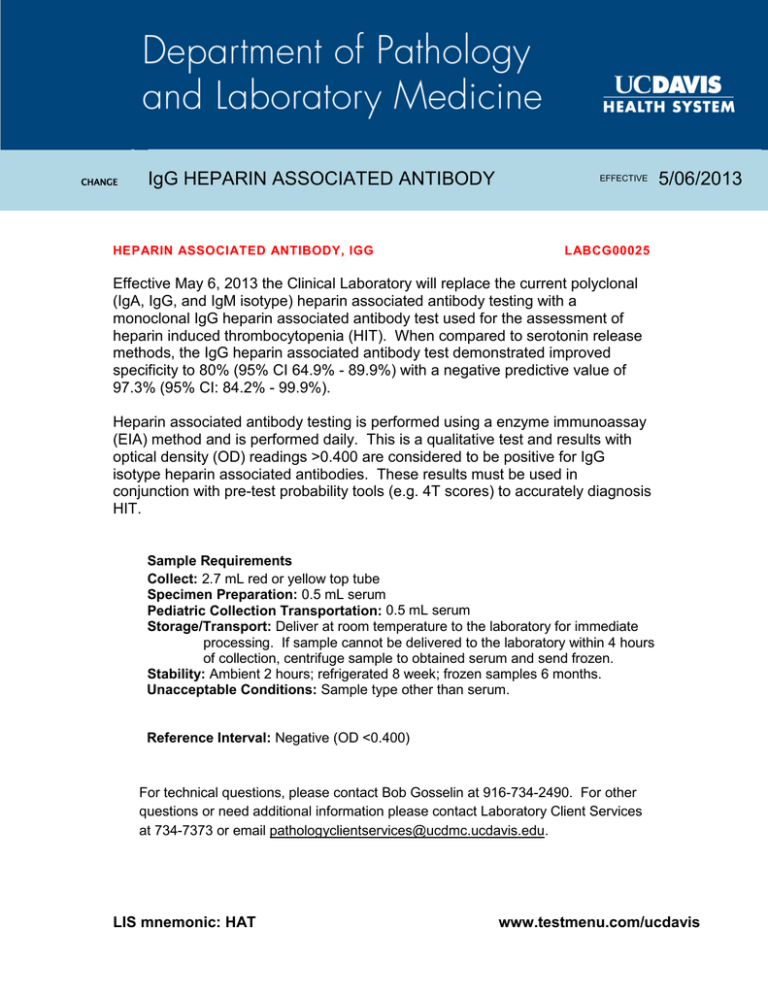
CHANGE IgG HEPARIN ASSOCIATED ANTIBODY HEPARIN ASSOCIATED ANTIBODY, IGG EFFECTIVE 5/06/2013 LABCG00025 Effective May 6, 2013 the Clinical Laboratory will replace the current polyclonal (IgA, IgG, and IgM isotype) heparin associated antibody testing with a monoclonal IgG heparin associated antibody test used for the assessment of heparin induced thrombocytopenia (HIT). When compared to serotonin release methods, the IgG heparin associated antibody test demonstrated improved specificity to 80% (95% CI 64.9% - 89.9%) with a negative predictive value of 97.3% (95% CI: 84.2% - 99.9%). Heparin associated antibody testing is performed using a enzyme immunoassay (EIA) method and is performed daily. This is a qualitative test and results with optical density (OD) readings >0.400 are considered to be positive for IgG isotype heparin associated antibodies. These results must be used in conjunction with pre-test probability tools (e.g. 4T scores) to accurately diagnosis HIT. Sample Requirements Collect: 2.7 mL red or yellow top tube Specimen Preparation: 0.5 mL serum Pediatric Collection Transportation: 0.5 mL serum Storage/Transport: Deliver at room temperature to the laboratory for immediate processing. If sample cannot be delivered to the laboratory within 4 hours of collection, centrifuge sample to obtained serum and send frozen. Stability: Ambient 2 hours; refrigerated 8 week; frozen samples 6 months. Unacceptable Conditions: Sample type other than serum. Reference Interval: Negative (OD <0.400) For technical questions, please contact Bob Gosselin at 916-734-2490. For other questions or need additional information please contact Laboratory Client Services at 734-7373 or email pathologyclientservices@ucdmc.ucdavis.edu. LIS mnemonic: HAT www.testmenu.com/ucdavis
